
What if we told you that with just a few small changes to the way you do things, you could improve the efficiency and productivity of your entire company?
All you need to do is make your developers more productive.
To help you start creating and launching applications faster than ever before, we’ve compiled 14 ideas to improve the productivity of your developers.
Let’s begin.
Table of Contents
Be clear on productivity metrics
To improve developer productivity, you first have to measure it. But, can this even be done? Well, according to research, 89.2% of developers believe it can, and 92.1% would like to know their results.
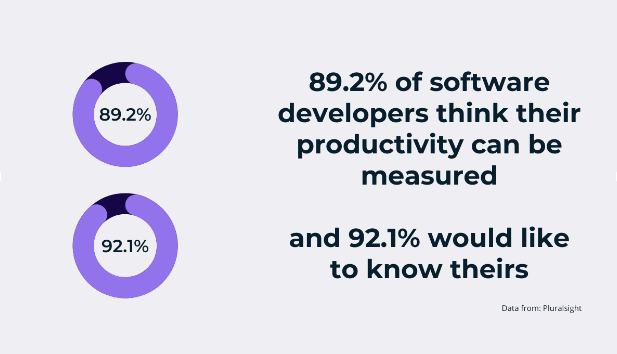
However, over time, some misconceptions have formed about this topic, such as that developer productivity can be measured using only one single metric.
Let’s explore this by using only the “working hours” as our metric. If you decide to measure the productivity of your developers based on the hours they’ve put in, you’ll notice that the quality and quantity of work aren’t necessarily growing accordingly.

Get unreal data to fix real issues in your app & web.
That’s because your developers are forced to spend more and more time at work, leading to them making mistakes and performing poorly, which then needs to be fixed with even more work.
This is exactly why top tech companies are dispensing with the traditional working schedule altogether and adopting a more flexible stance towards labor. Just look at any tech company’s careers page and you’ll see what we mean.
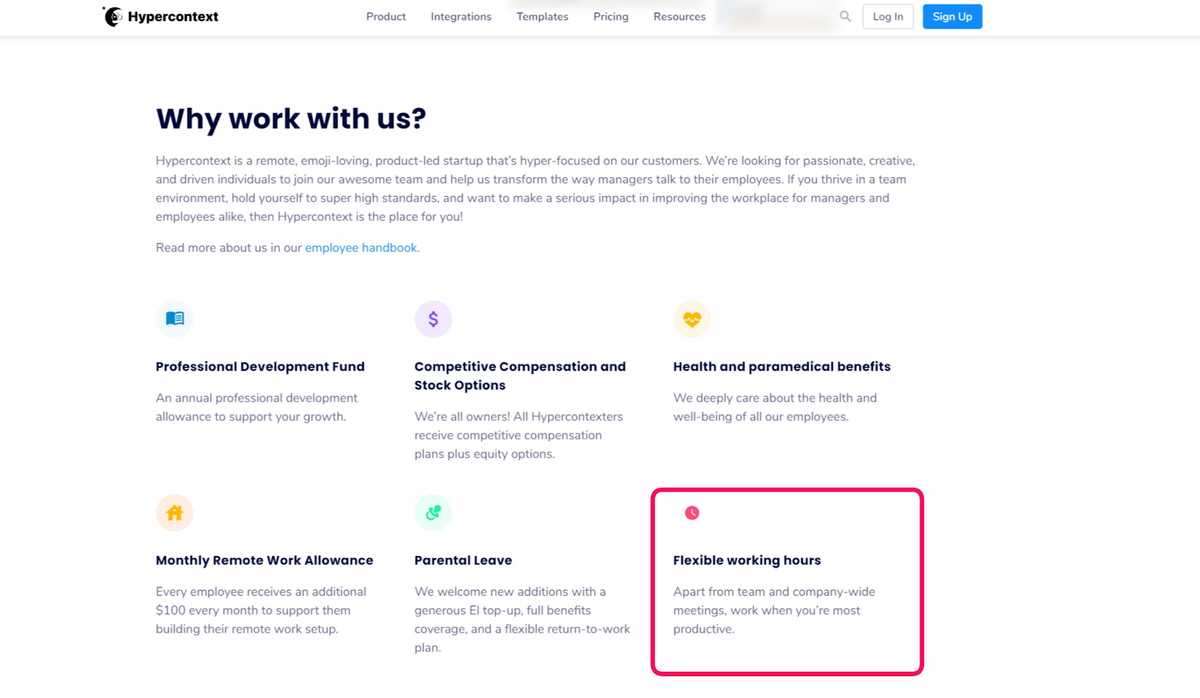
Therefore, instead of using a single metric, try to pay attention to several, and customize them to suit your company’s needs.
For example, you can measure velocity, regressions, or planned releases on the schedule. Basically, whatever makes the most sense for your business.
Don’t confuse time invested with efficiency
The sound way to think about work is to strive for optimal results in the least possible time, instead of merely insisting that your employees sit at their desks for a full 40-hour workweek.
In other words, workers investing long hours means nothing if the results just aren’t there.
And it seems that the corporate world is finally waking up to this fact because more and more companies are prioritizing flexibility for their workers.
Take Netflix, for example. Their Culture Code explicitly states that working at the company “isn’t about hard work.”
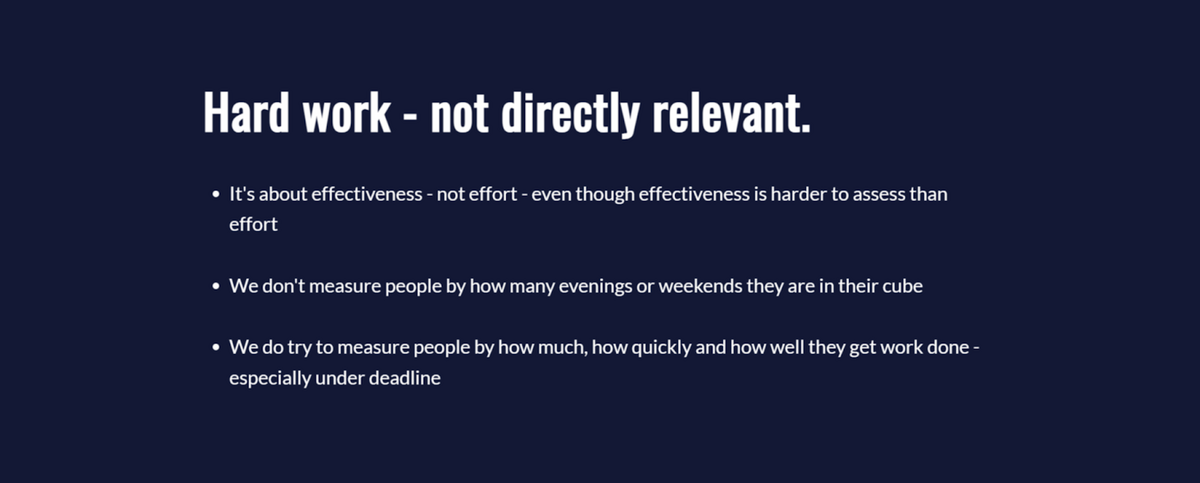
While investing time and effort into a project is important, it doesn’t mean much if your workers aren’t efficient at doing their jobs.
To put it into perspective, imagine one of your developers putting in a lot of effort into a project, working long hours and often staying overtime, only for it to become clear that the work he’s been doing was low quality, or worse, wasted on a project that the company doesn’t really need.
That’s an example of how the amount of time invested means very little without efficiency.
Our point is that effort should go hand in hand with productivity and efficiency; you can’t have one without another.
It’s about getting the work done in the least amount of time as much as it is about focusing on the right things to produce quality.
Minimize distractions
According to scientists, it takes about 15 minutes for an average person to regain focus after being distracted.
Developers’ work is complex, and if they get distracted, it might be hard for them to get back on track.
Even though distractions can’t be avoided, you can do certain things to minimize them.
This can be done by providing your developers with noise-canceling headphones or, to go a step further, creating designated areas for quiet work and meetings.
For example, an interesting solution is offered by Viking Domes, an interior design company that specializes in building quiet domes for large, open space offices where meetings inevitably disturb the programmers’ deep work.

However, noise isn’t the only thing that needs eliminating; there’s also clutter.
It’s a proven fact that the mind can focus better in a well-organized environment.
Encouraging your developers to keep their desks clean might seem irrelevant, but you’d be surprised what a little order can do for productivity.
Also, according to research, putting some lovely green plants on the desks will increase productivity by 15%.
And it’s nice to have a little plant friend around to take care of.

Some companies, such as the rota planning software provider, RotaCloud, even have a yearly desk plant budget for their employees. The employee in the picture above sure made good use of it.
In short, minimizing distractions will save time and improve focus and, therefore, productivity.
Encourage frequent communication
Communication is important at any workplace; it helps your employees share information and ideas but also allows them to relax and wind down.
It’s no different with software engineers, so make sure to keep communication channels open. Encourage your developers to ask questions, connect with others, and exchange ideas.
You can do this through Slack or internal boards.
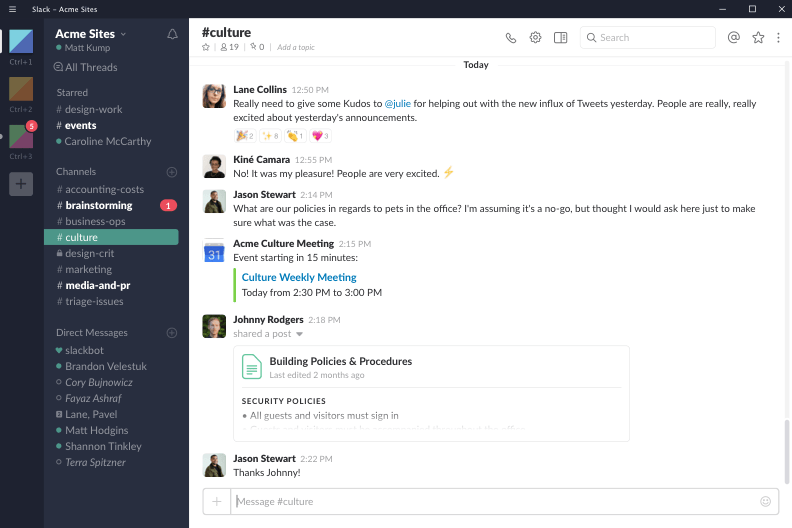
Every once in a while, you can also organize team lunches.
Another thing to keep in mind is documentation. Your developers will waste a lot of time figuring out how stuff works.
It will be of great help to them if you document all important procedures and protocols and store them in a cloud-based system.

In this way, they will not have to waste their precious time or waste yours asking too many questions, which will boost their productivity in the long run.
So, frequent communication actually improves productivity; ideas are shared, cooperation is encouraged, and your team is getting their work done more efficiently.
Mind what you communicate about
So now that we’ve stressed the importance of communication, it’s also crucial not to overdo it.
Sure, communication is productive, but not all communication is necessary, so be mindful of what you contact your developers about, and how.
For example, always think twice about whether you can communicate something over an email instead of a Slack message or call, as those could potentially interrupt your developers’ flow.
Also, keep in mind that sometimes your whole team can benefit from a message you were planning on sending to just one member privately.
If you’re using Slack, that means making good use of its channels feature.
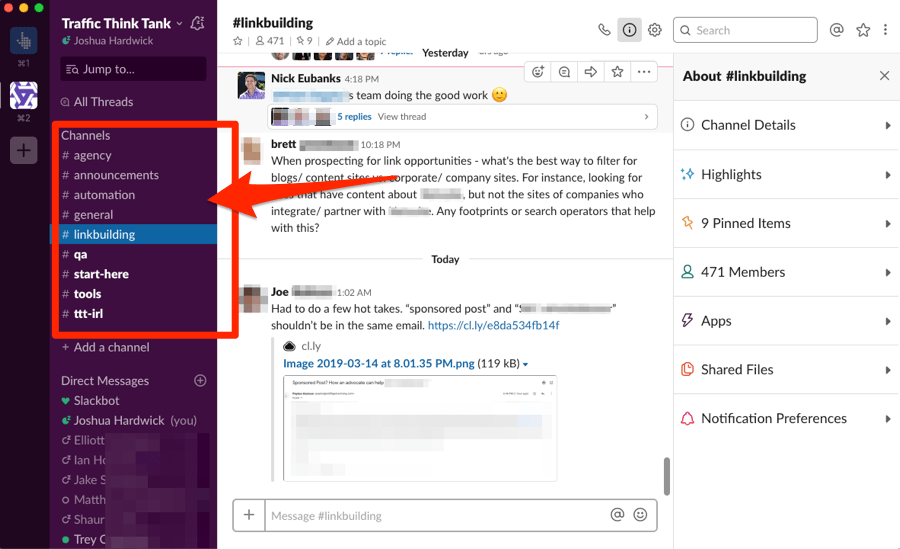
Another way to increase productivity is to keep your meetings short and to the point, and only invite employees who need to be there.
It’s better to leave others to do their work in peace than to waste their time on things that are of no actual use to them, right?
In that sense, you might Jeff Bezos’s Two Pizza Rule useful: if you can’t feed everyone at the meeting with two pizzas, there’s too many people there.

So, while frequent communication is important, it has its limits. Too much of it can be counterproductive and a waste of everyone’s time, so make sure to keep it relevant.
Match their tasks to their strengths
Nobody is good at everything. And that’s a good thing because you can use it to your advantage.
People tend to be more productive if they do something they are good at and that interests them.
That’s why, for example, Facebook lets their new engineers join different teams to try them out before deciding who they want to work with after onboarding.

If you give your developers more freedom, over time, you will notice the strengths and weaknesses of your team members—information you can use to direct their career at your company.
Not only will your company’s productivity increase, but your employees will also be happier.
It really is as a wise person once said: “Choose a job you love, and you will never have to work a day in your life.”
Adopt the CI/CD approach
The CI/CD (continuous integration, deployment, and automated testing) approach is being used more and more in the developers’ world, and it’s no wonder since it enables organizations to ship their software faster than ever before.
The reason behind this is that it introduces automation into the stages of app development.
For instance, it will save your development and operations teams headaches since it solves problems caused by integrating new code.
With CI/CD, you will get not only ongoing automation but also continuous monitoring, from integration and testing to delivery and deployment of your application.

The CICD approach will inevitably boost the productivity of your developer team since it emphasizes automation in all parts of the process, from building to delivering software.
Empower developers with productivity tools
If you want your developers to be productive, you need to ensure they are equipped with the right tools.
Starting with good hardware: while laptops are great for the majority of developer tasks, you should still pair them with some large monitors.
Moving on to software, some of the most popular productivity tools for developers are project management systems such as Jira, Trello, and Asana.
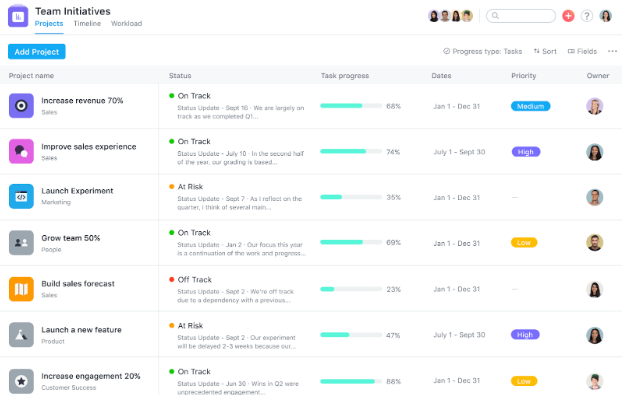
Project management tools are great because thanks to them, you’re able to achieve more within a shorter time frame as they offer different tracking options to make life easier.
For instance, you can use Jira to track stories, epics, and some other tasks as well. However, if you want to make bug and crash tracking more efficient, you will be better equipped with Shake + Jira integration.
Below are just some of the apps Shake connects with.
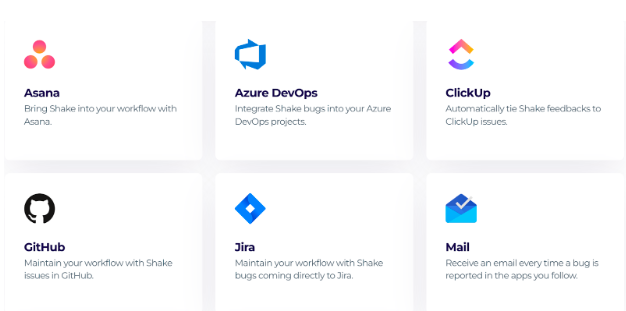
Long story short, choosing the right set of tools for your developers is crucial. After all, it’s impossible to be productive without suitable equipment.
Implement agile methodologies
More and more organizations are implementing agile practices for their development teams, which is no surprise since they increase efficiency and speed.
The agile approach entails managing projects by breaking them down into several phases.
The main difference between traditional and agile project management is that with an agile approach, you continuously release and test updates and features.
This enables you to hit the market faster and work out the kinks along the way.
In order to go agile, you should look into different agile practices and frameworks, such as Scrum.
This framework is used a lot in the IT industry since its main focus is sprinting and planning instead of having a single milestone.
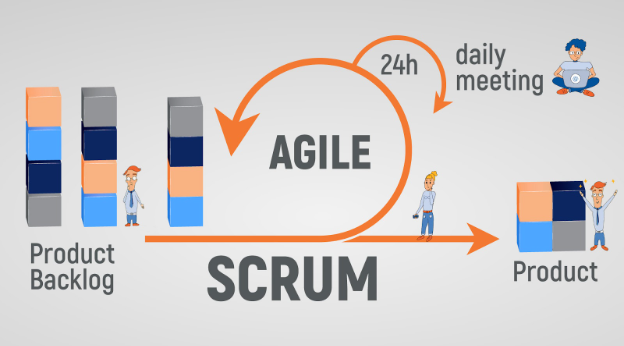
With Scrum, your team will have mandatory meetings every morning, while feature implementation will be assigned every two to four weeks.
In conclusion, with everything said, it’s clear that agile methodologies are an excellent path to take for improving the productivity of your developers.
Involve developers when setting deadlines
Deadlines are a stumbling block for many companies. The problem with deadlines is that they can be good or bad; it depends on your organizational skills.
For instance, if you set them properly, deadlines will motivate your team and help them plan and prioritize.
But if you make them too tight, your developers might feel overwhelmed and stressed, which will negatively affect their focus and productivity.

The best solution we can offer you is to ask your developers for an estimate on how long it will take them to finish a certain task and set a deadline accordingly.
Of course, you must consider unpredictable events such as unexpected bugs and other problems that can pop up.
In this way, a reasonable deadline will be set, and your developers will be able to perform their tasks stress-free.
Simply put, if you want to boost productivity, you should involve your developers when defining their deadlines. After all, they know how much time it takes them to perform their tasks.
Foster healthy habits
Healthy habits often get neglected but fostering them isn’t just good for the employees’ well-being; it’s also good for business.
Yes, encouraging your developers to adopt healthy habits will improve their productivity.
For instance, it’s important to encourage breaks—and we’re not just talking about lunchtime. It’s proven that the mind needs to take breaks to keep up with focus and concentration levels.
Furthermore, studies have shown that 59% of employees think more breaks would make them happier at work.
So providing your developers with small, frequent breaks during working hours will boost their energy levels and prevent them from overthinking.
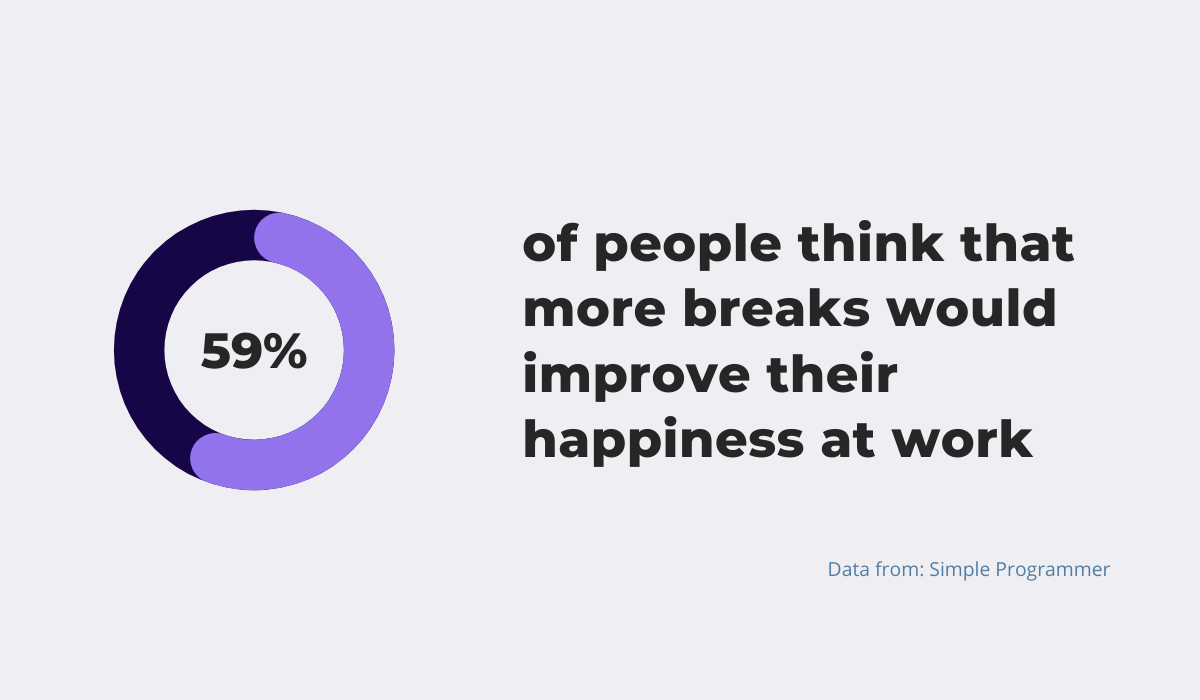
However, the mind should not be your only concern. You are probably familiar with the saying, “a sound mind in a sound body.”
Developers’ work is sedentary, so you can provide them with some gym passes to get them moving and save their muscles from atrophying.
Software developers can easily get overworked, and working without taking breaks is a health hazard that can jeopardize their productivity.
Offer your developers more opportunities to rest, but don’t forget to encourage them to exercise and foster other healthy habits, either.
Automate what you can
By automating boring, repetitive tasks, you will make it easier for your developers to focus on more important things.
Nobody likes to waste time running unit tests or moving data into the database. These dull tasks have a negative impact on the productivity of your developers.
The good news is that you can automate all of these mundane tasks.
For instance, Shake can automate bug detection, and a Bitbucket Pipeline is a lifesaver when it comes to monitoring your app’s build process.

Also, if you are a macOS user, a tool like Alferd will save you lots of time since it can help you define custom actions for repetitive tasks.
To sum up, you should find a way to automate every uninspiring, boring or repetitive task so that your developers can focus on more important ones.
Nurture two-way feedback
Effective feedback is a two-way street. In other words, receiving feedback is just as important as giving it.
By giving feedback to your developers, you help them tremendously to improve their work.
After all, people can’t improve if they don’t know what they could do better, right?
However, don’t forget to also ask them for feedback, too. Analyze it, improve, iterate to eliminate productivity blockers, and collect more feedback afterward.
To really be efficient about it, consider using a feedback tool that will help you automate parts of the process and schedule feedback for every employee, so no one gets left behind.
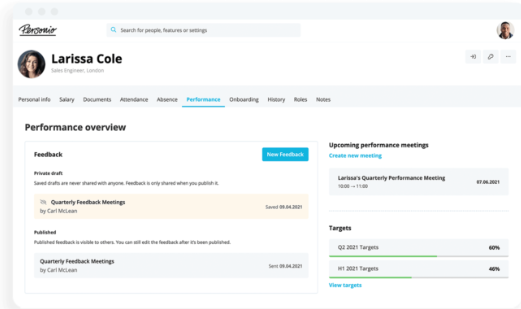
You see, when it comes to feedback, a one-sided approach won’t cut it.
Regular, two-way feedback is the way to go if you want your developers to improve and grow in productivity.
Build up your developers
Investing in training, time management, communication skills, and team building are all true and tried ways to improve productivity, and it’s no different when it comes to the IT sector.
Having said that, the problem with developers is that they often think all they need to do to improve is have access to the internet. But there are better ways of going about this.
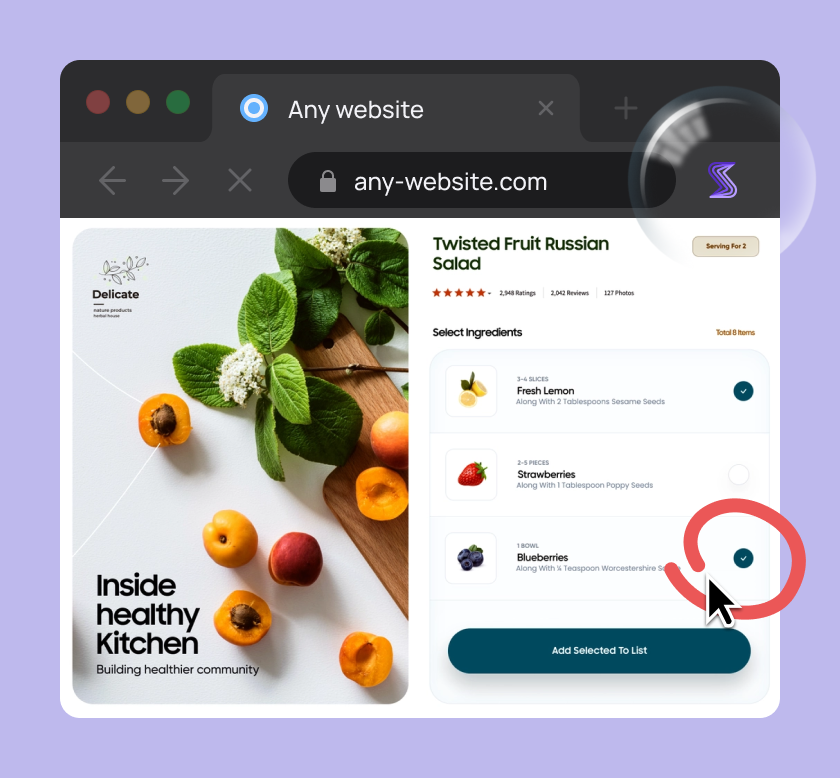
Capture, Annotate & Share in Seconds with our Free Chrome Extension!
Instead of having them scroll the world wide web for answers, you can get them a mentor or, in the case of new hires, an onboarding buddy to help them learn the ins and outs of their job.
For example, Buffer actually employs a three-buddy system in which every new employee gets three buddies from whom they can learn and become integrated into the team.

The key takeaway here is that if you want productive developers, you will need to invest time and resources in their professional growth.
Providing them with a mentor or buddy is just one way to train them into becoming experts in their field.
Conclusion
Remember, productivity is a journey, not a destination, and your whole team is in it together.
Even the best developers on your team will come across various productivity challenges in their careers, and it’s up to you to make it easier for them.
We are sure that with the advice and ideas we’ve given you through this article, your developers will improve their productivity in no time.





